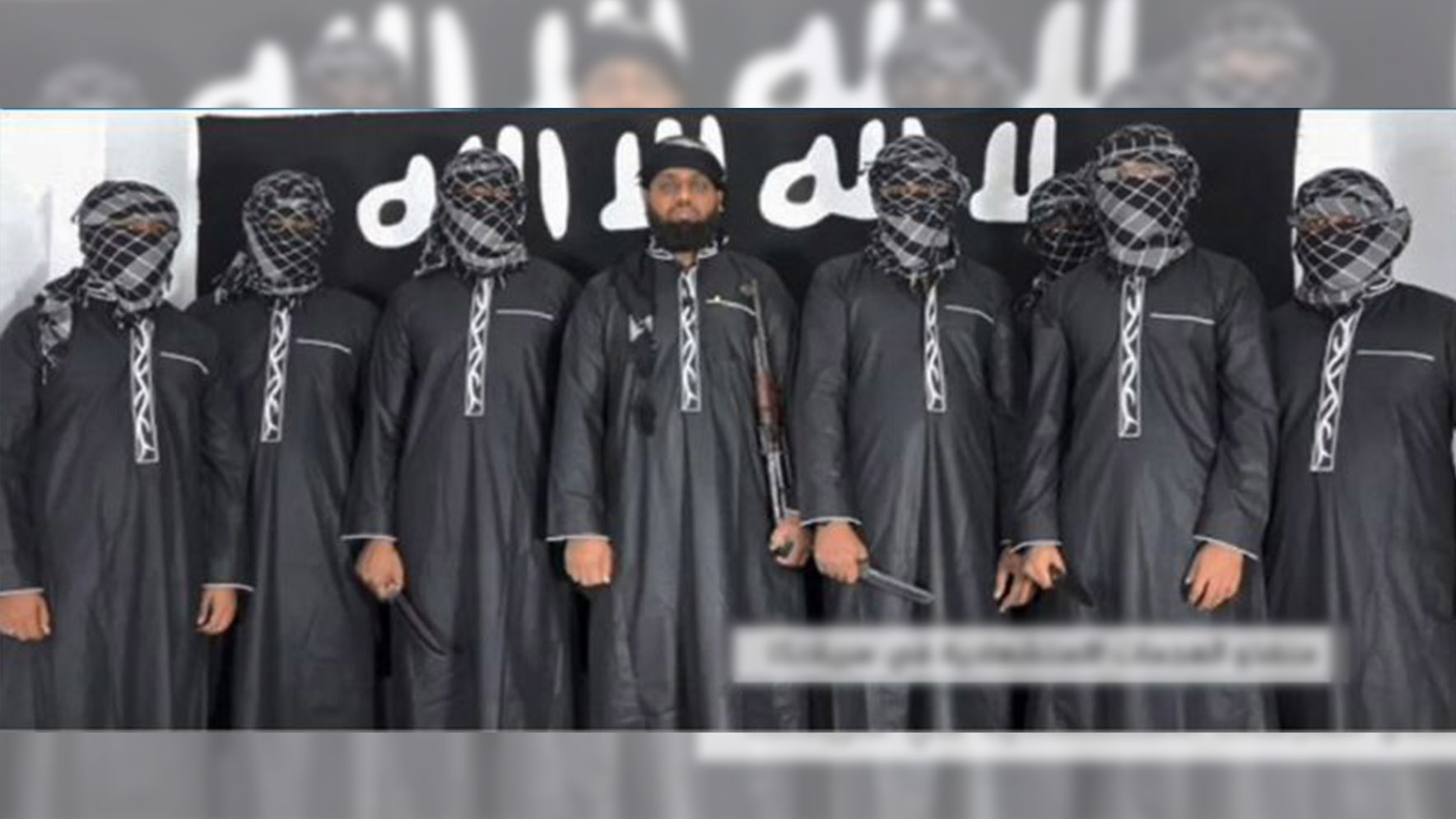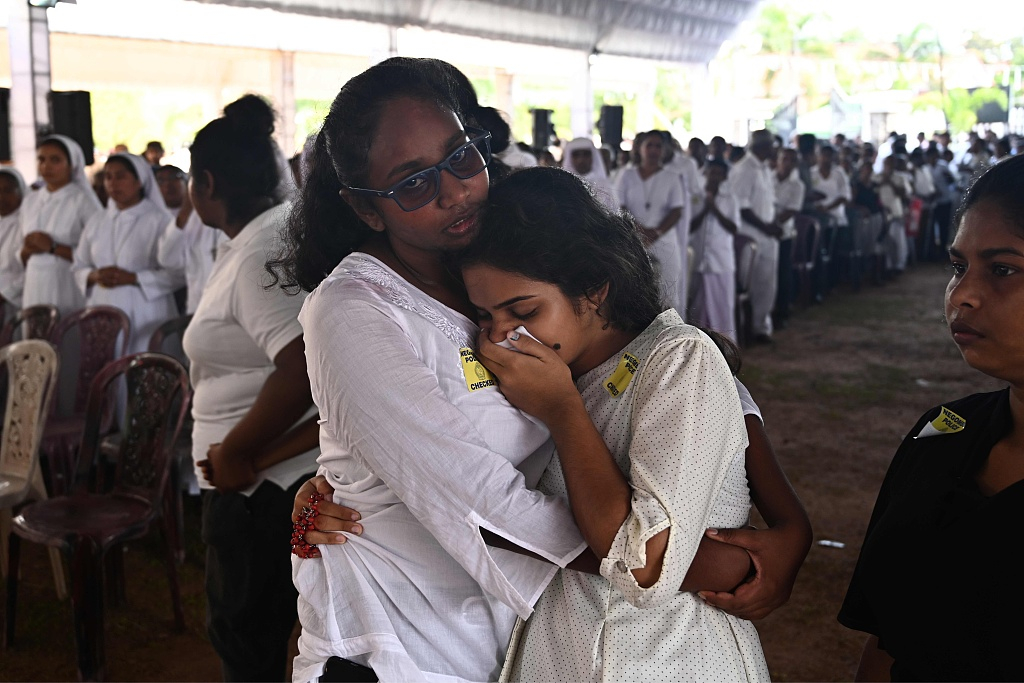
Asia Pacific
15:22, 07-May-2019
All suspects in Sri Lanka bombings arrested or dead: acting police chief
CGTN

All suspected plotters and those directly linked to Sri Lanka's Easter Sunday bombings have either been arrested or are dead, the country's acting police chief said on Monday.
In an audio statement circulated by the defense ministry, Chandana Wickramaratne, the acting Inspector General of Police, said security forces had also confiscated bomb-making material intended for future use by the militants involved in the attacks, which killed more than 250 people.
Sri Lankan authorities have said the bombings were believed to have been carried out by two local Islamist groups, the National Tawheed Jamaath (NTJ) and Jamathei Millathu Ibrahim (JMI). However, Islamic State (ISIL) has claimed responsibility but Sri Lankan authorities remain unsure about it and suspect the two groups having international ties.

Sri Lankan forces conduct a search operation in Omadiyamadu, Sri Lanka, May 6, 2019. /VCG Photo
Sri Lankan forces conduct a search operation in Omadiyamadu, Sri Lanka, May 6, 2019. /VCG Photo
Who are the NTJ and JMI?
The NTJ is believed to have been formed around 2014 after breaking away from the larger Sri Lanka Thowheed Jamath (SLTJ), according to a report in The Hindu newspaper.
The group is much like SLTJ whose religion is believed to be Wahabee, and was based in Kattankudy, a Muslim-dominated town in eastern Sri Lanka.
On its Twitter page, the group would regularly organize talks and seminars, distribute videos and even arrange funeral prayers at mosques. It has a limited social media presence and hasn't been updated since March 2018.
Last year, the Sri Lanka government declared a national state of emergency after the majority Sinhalese ethnic group attacked dozens of Muslim businesses, houses and a mosque in the central district of Kandy. Months after the riots, NTJ's secretary Abdul Razik was arrested on charges of inciting religious unrest.
Less is known about Jamathei Millathu Ibrahim, which is believed to be a splinter group criticized as a terrorist group and banned by the Sri Lankan government following the onslaught.

Security personnel stand guard outside a mosque during Friday prayer following a series of bomb attacks, Colombo, Sri Lanka, April 26, 2019. /VCG Photo
Security personnel stand guard outside a mosque during Friday prayer following a series of bomb attacks, Colombo, Sri Lanka, April 26, 2019. /VCG Photo
Connection with ISIL?
Zahran Hashim, leader of the NTJ, is believed to be the mastermind of the Easter Sunday terror attacks in Sri Lanka.
He featured in a video released by the ISIL soon after the deadly attacks. In the video, dressed in a black tunic, headscarf, and carrying a rifle, Hashim is the only one of the eight figures whose face is uncovered. The round-faced man was leading other seven people who were all in the same black tunics and with face-obscured black-and-white chequered scarves pledging allegiance to the group's chief Abu Bakr Al-Baghdadi.
Hilmy Ahamed, vice-president of the Muslim Council of Sri Lanka, told AFP he was concerned about Hashim three years ago. "This person was a loner and he had radicalized young people in the guise of conducting Quran classes," he said. "But nobody thought these people were capable of carrying out an attack of such magnitude."

A person lights lamps at St. Sebastian's Church in Negombo, near Colombo, May 4, 2019. /VCG Photo
A person lights lamps at St. Sebastian's Church in Negombo, near Colombo, May 4, 2019. /VCG Photo
Peace Loving Moderate Muslims in Sri Lanka, a local Muslim group also denounced the NTJ in 2014, in a statement saying the NTJ was "fast becoming a cancer" within Sri Lanka's Muslim community.
The statement warned that members of the group were making mosque attendance compulsory, forcing a strict implementation of Islamic law above Sri Lankan law and forcing women to cover their faces and wear long robes in place of traditional saris.
"It is tragic that the majority of Muslims who are essentially peace-loving are to pay for the actions of this minority," the statement said.
The leader of the NTJ was confirmed dead by Sri Lankan President Maithripala Sirisena on April 26.

Two women mourn during a funeral service for Easter bombing victims at St. Sebastian's Church, Negombo, Sri Lanka, April 23, 2019. /VCG Photo
Two women mourn during a funeral service for Easter bombing victims at St. Sebastian's Church, Negombo, Sri Lanka, April 23, 2019. /VCG Photo
"What intelligence agencies have told me is that Zahran was killed during the Shangri-La attack," said Sirisena.
And most of others linked to the Easter suicide bombings were also killed or arrested by Sri Lankan forces, Prime Minister Ranil Wickremesinghe said on April 28.
"Most of them have been arrested. Some have died," he said. "Now we are able to return to normality. We should all now help restore the normal life of the community."
(Cover: Screenshot from the video released by the group's propaganda agency Amaq. /AFP Photo)
(With inputs from Reuters and AFP)

SITEMAP
Copyright © 2018 CGTN. Beijing ICP prepared NO.16065310-3
Copyright © 2018 CGTN. Beijing ICP prepared NO.16065310-3